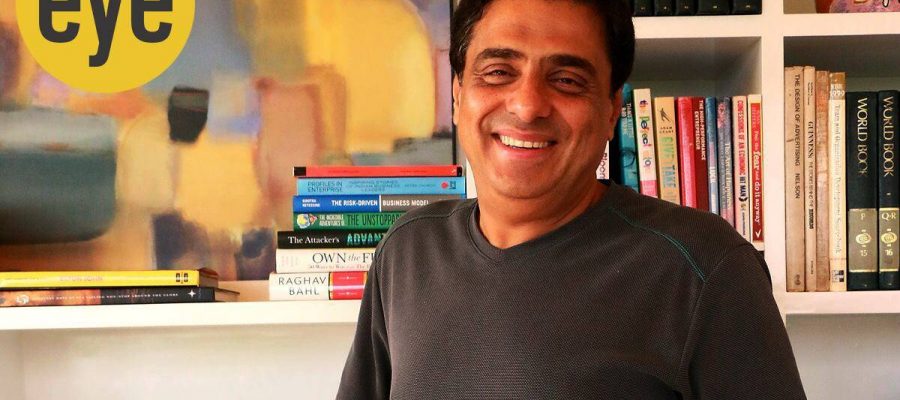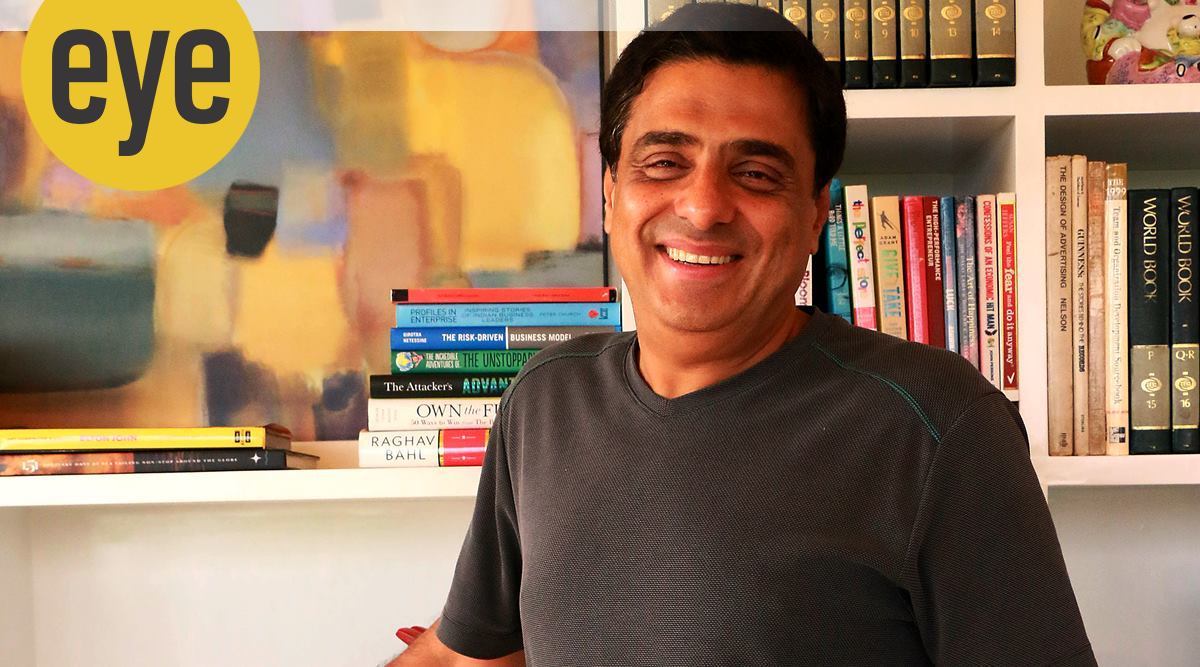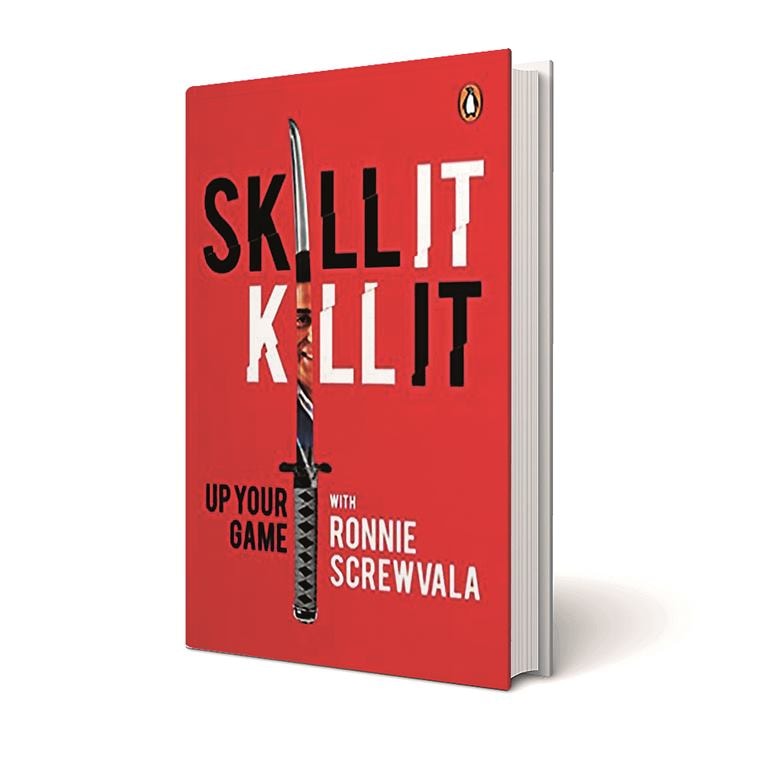The entrepreneur and producer on honing soft skills, his career in the entertainment industry and his new self-help book
Did your role as a producer inform the writing of Skill It, Kill It: Up Your Game? There seem to be many parallels.
Just to clarify, I haven’t played that role in the last 10 years. That’s my previous avatar. My main focus is really upGrad (online higher education company). RSVP (Movies, his revamped production house) is more of a hobby; it takes less than five to ten per cent of my attention and time. I haven’t been active other than occasionally when I want to do a movie.
Designed as a self-help book, it includes instances of reportage. How did you arrive at the format?
Ideally, I would love to write a book in an audio form because that’s the best way to communicate. That doesn’t mean I used a dictaphone in the process. For me, the fun was writing it in the first person, talking as if we’re in one room, that’s the best way somebody can relate.
How was it to write a book for employees from an employer’s perspective?
You can’t be an employer without employees and vice-versa. This book is about giving insights into what I thought were relevant, because if I’m sitting there, observing, I have expectations, but I also can see the other person’s perspective. Speaking only from an employer’s point of view will be very top down and clinical. I, too, was an employee once — at the Walt Disney Company for a limited period of 18 months in my 40-year entrepreneurial career. I’ve seen both sides.
You write about the need to take big risks. Was that your approach when you were starting out as a producer?
Absolutely. Look, I started off 15 years before films. There was cable TV, then I started manufacturing. Then, I started a media company. Movies — while it occupies people’s minds more — came much later. With UTV, only 30 per cent revenue came from movies, rest from games, interactive content and 10 broadcasting channels. When starting off, once you’ve made a decision you need to see it through. The harder the choices, the better the reward. When people say, ‘wow, look where he’s at’, I say, look at the risks that were taken to get there; look at the number of failures. I chose to be an entrepreneur and I didn’t have a plan B. Nobody would have given a B.Com failure a job at that time.
With UTV, you’ve backed films that became cults. What made you bankroll them?
Breaking the mould was important since the media was not a predefined sector. In movies, doing what everyone else was doing was not a choice for me. It’s a very tight-knit place. I’m an outsider, a south Bombay guy. I had to go on a path less trodden with directors who had a different mindset. That’s been my approach, to be a little against the trend. Swades (2004) was a movie before its time. We were fortunate to be successful with Rang De Basanti (RDB, 2006). It was definitely a script, movie, and storytelling well before its time. With Uri: The Surgical Strike (2019), I’d the same feeling as RDB. Aditya Dhar hadn’t directed a film before, Vicky Kaushal was just coming up, and I was giving him the lead. We were making a real war film which people in India hadn’t seen since Border (1997).
RDB got made despite the odds. Why produce such a film?
I will give myself a little more credit than that. It was just the storytelling. There’s one grain of storytelling — of love stories and family stories — package it with stars and you can’t go wrong. Although, today you might. The second is when you’re with the consumer. We were running YouTube and broadcasting channels. I could see the younger audience was looking for a different narrative. With RDB, I felt we’ve got to break this out. Rakeysh (Omprakash Mehra) had just come out of a really bad flop (Aks, 2001). Aamir (Khan) being in the movie (RDB) was definitely better. We believed in the story and wanted to break the mould. You need guts. That’s something I’ve enjoyed doing. In higher risks, there are always disproportionate gains.
How difficult is storytelling, spotting trends and navigating obstacles today? What would you say about toxic work cultures?
Storytelling is your ability to push yourself and talk about your vision strongly. That’s important for a working professional. It’s the same with upGrad. How do you tell 100 million working professionals, ‘Hey, guys, the bad news is you have to continue learning for the rest of your life?’ Now (post-pandemic), you’ll have to hone your soft skills even more in a digital environment. If the culture is wrong, then it’s the organisation’s, employer’s responsibility to solve it. It’s non-negotiable. But it’s also over-dramatised to call an organisation toxic when it’s performance-oriented, competitive or demanding. Frankly, that’s the world, whether we like it or not.
Having backed films like RDB, Lakshya, Swades and Uri, has the prospect of making a film about the nation changed?
There are not enough stories told. There is no second-guessing that a sense of patriotic pride unites people. But, inspirational stories are different from nationalistic stories, which are different from patriotic stories. You win a war, hoist a flag, that’s patriotic. You win an Olympic medal, the World Cup, that’s nationalistic pride. We have not really taken biopics seriously. We are not a sporting nation. Even today, sport is not a career option. How can we be a nation that’s going to win 20 Olympic gold medals and have national pride unless we put that in our DNA? Parents see cricket as an extracurricular activity, not a career. Movies are a powerful way to build aspirations of a nation. That’s what I would love to do, and am doing.
Source: Read Full Article



